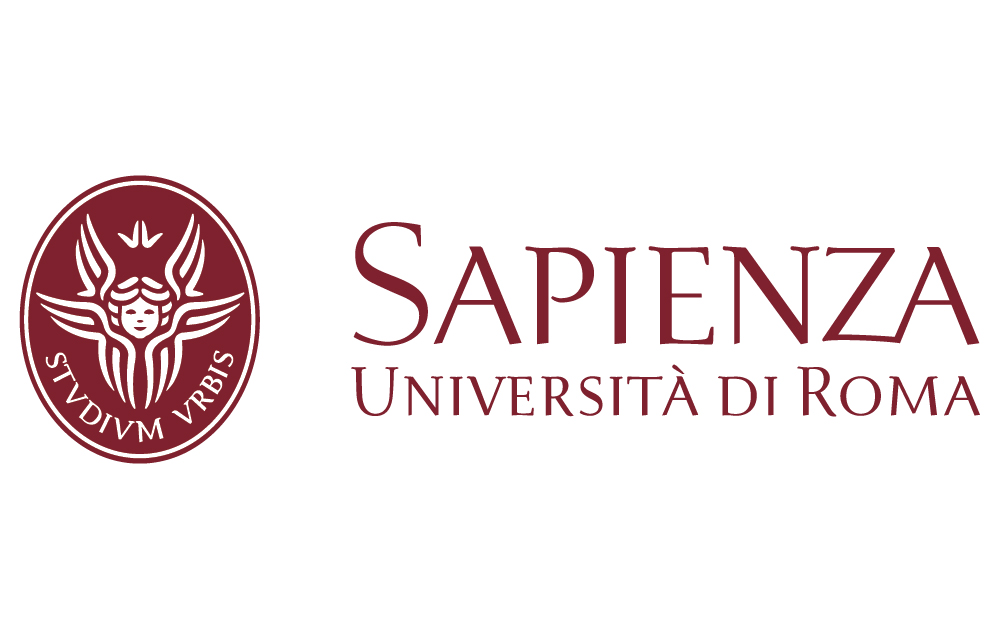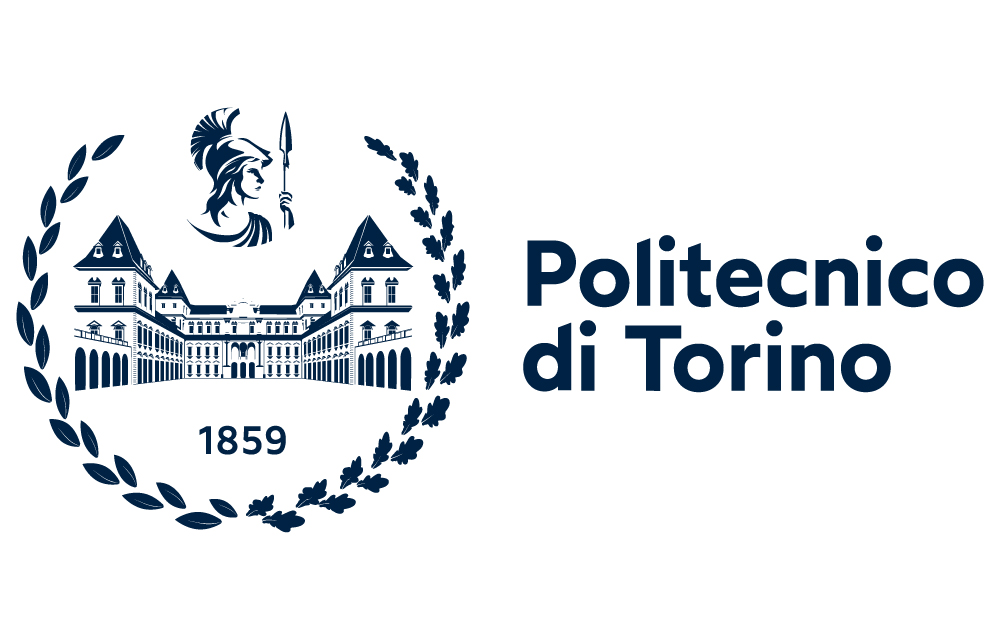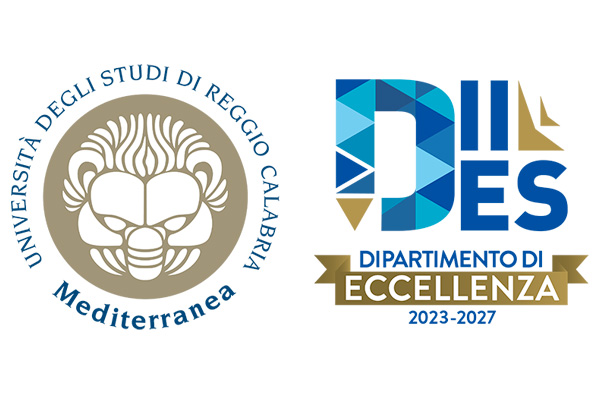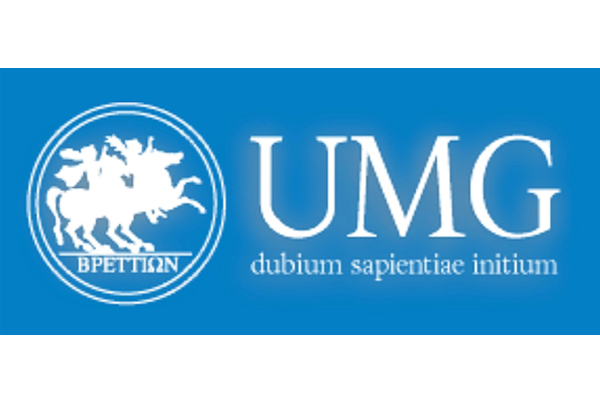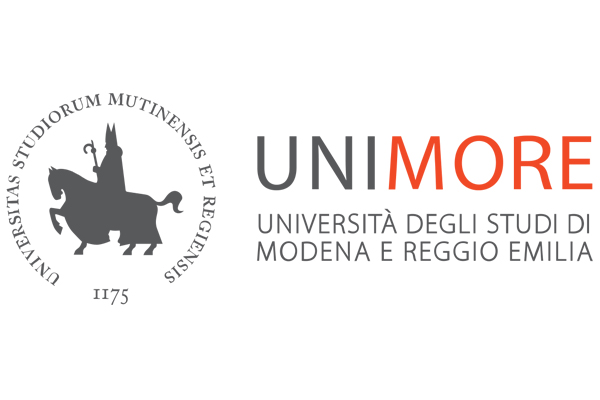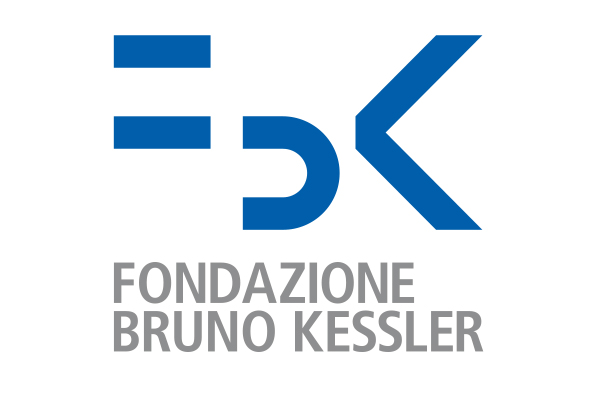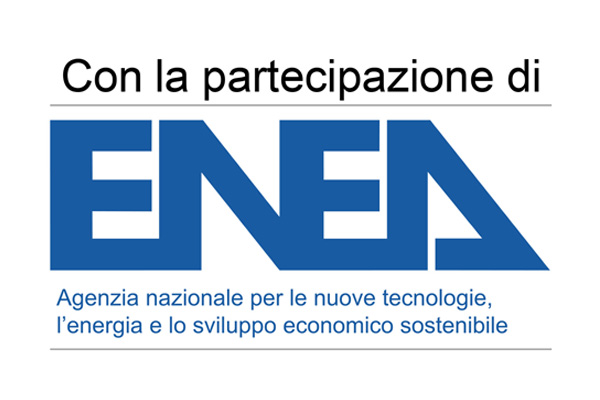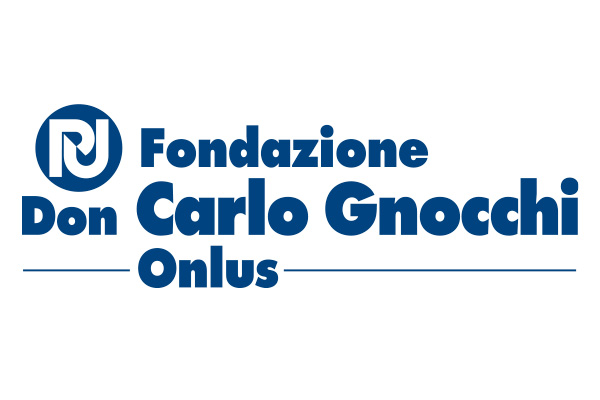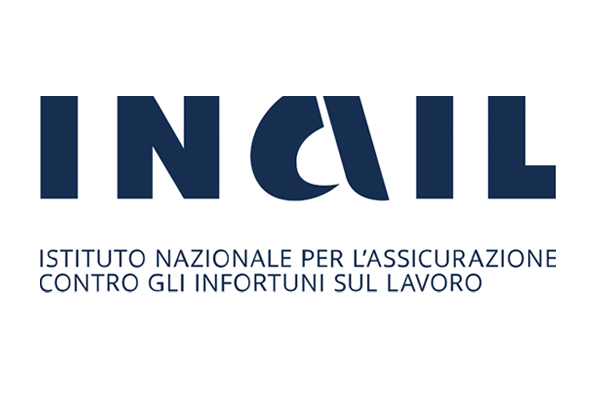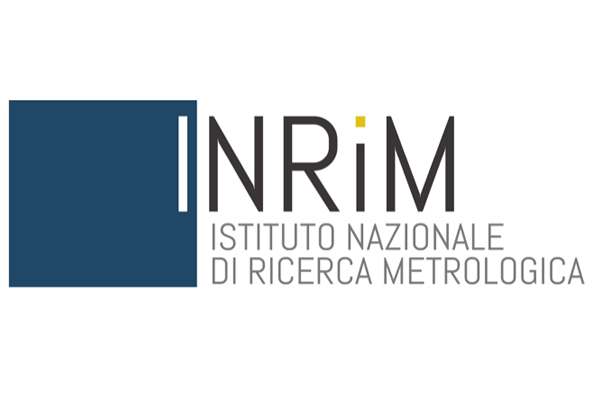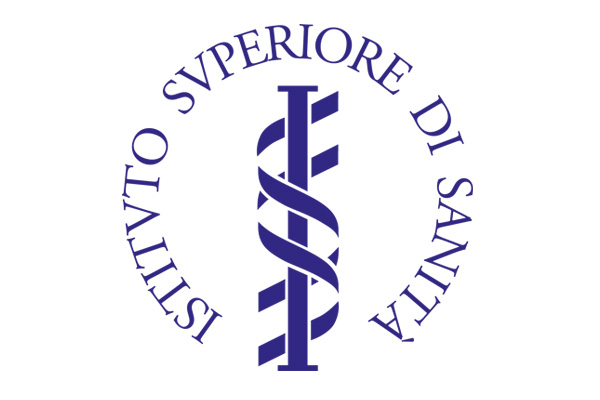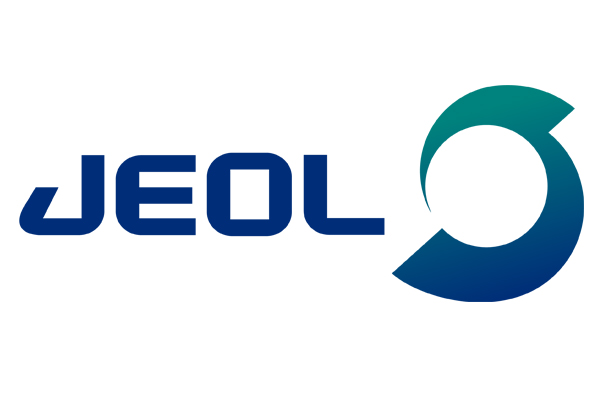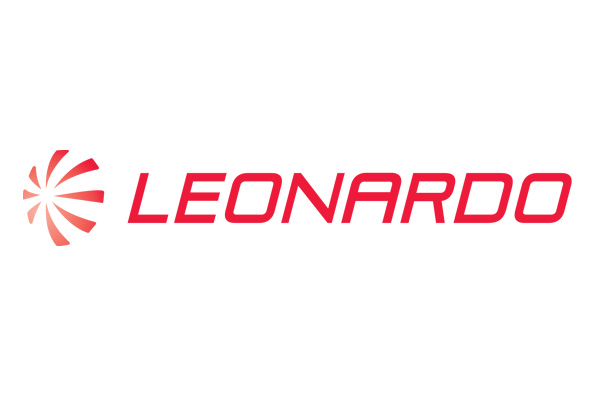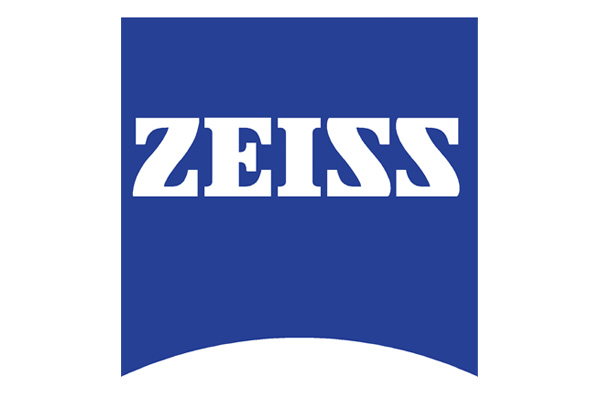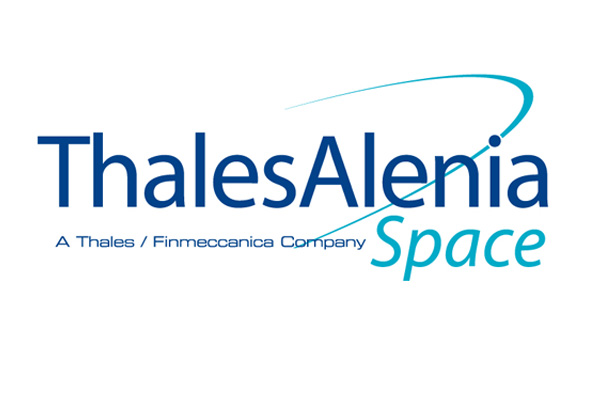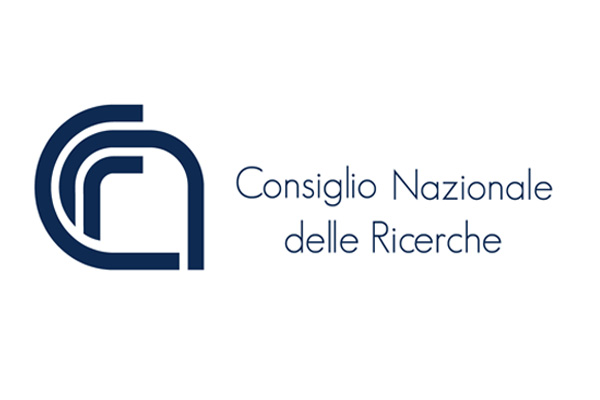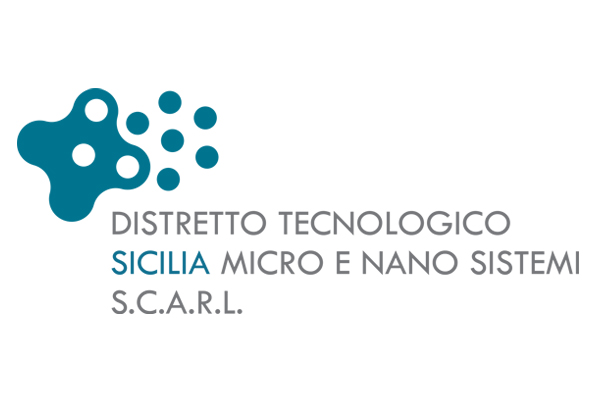NanoInnovation brings together scientists, researchers, and industry professionals to discuss the most recent developments in the field of nanotechnology and its applications. The event typically features plenary and keynote speeches, scientific symposia for presentations, and poster sessions. Presentations cover a wide range of fields and topics. In particular, multi-track sessions with parallel thematic symposia are scheduled on September 20 - 21 - 22. Each of the twelve multi-track sessions will include parallel thematic symposia, each of them of 90 minutes. Some thematic symposia are part of workshops and special events while others are organized independently.
In addition, there are roundtable discussions, workshops, and networking events to facilitate collaborations and knowledge exchange among participants. Past editions of NanoInnovation have attracted hundreds of attendees from around the world, including leading scientists, policymakers, and business leaders. NanoInnovation provides a platform for researchers, scientists, and industry professionals to share the latest advances and foster collaborations.
In this page, you can discover all the fields and topics that will be explored during the current edition and the related thematic symposia, workshops and special events, as soon as their schedules will be available.
updated on August 6, 2023![]() Click on the title to close/open the tab content.
Click on the title to close/open the tab content.

AGRI-FOOD
In a world where the projected population is expected to exceed nine billion by 2050, the challenges of addressing the rising global demand for food, energy, and water while simultaneously conserving natural resources and minimizing environmental pressures have reached a critical juncture. Various esteemed organizations, including the World Bank, the U.N. Food and Agriculture Organization, and the EU F2F and Green Deal strategies, have recognized the urgency of the situation and are calling for increased innovation to revolutionize the agri-food sector.
One of the most promising recent developments in this pursuit is the emergence of AgriNanoTechniques. These groundbreaking techniques hold immense potential and are on the verge of integration into precision agriculture, a rapidly evolving field where technology empowers farmers to optimize their use of water, fertilizers, plant protection products, and other essential inputs. The application of AgriNanoTechniques not only enhances efficiency but also significantly reduces resource wastage, making it a fundamental pillar of sustainable agriculture.
At NanoInnovation 2023, we acknowledge the pivotal role of nanotechnology in transforming the agri-food sector, and our primary focus is to explore the intricate relationship between agri-food, nanotechnology, and innovation. NanoInnovation 2023 aims to bring together the latest scientific research and cutting-edge innovations in the field of nanotechnology and its profound impact on the agri-food sector.
One critical aspect where AgriNanoTechniques show immense promise is in addressing the persistent challenge of agri-food waste reduction and valorization. Leveraging nanotechnologies, we can explore innovative solutions for recycling and efficiently utilizing agricultural waste, contributing to the establishment of a circular economy and significantly reducing our ecological footprint.
At NanoInnovation 2023, we are committed to fostering collaboration and facilitating the exchange of knowledge among experts, nurturing a dynamic ecosystem of innovation that will shape the future of agri-food and nanotechnology. We firmly believe that by bringing together stakeholders and scientists, NanoInnovation 2023 will serve as an useful and effecive forum for discussing and exploring the full potential of nanotechnologies in the primary agri-food sector.
| NANOTECHNOLOGY-BASED INNOVATIVE APPROACHES IN AGRICULTURE | TEMPORARY SCHEDULING |
| Nano-Enabled Agriculture: Agro-ecosystems Sustainable Management Co-organized with University of Tuscia, University of Udine Chair: Marta MARMIROLI - CV, University of Parma |
Sept. 21 11:30 - 13:00 |
| Nano-Enabled Agriculture: Perspectives in Crop Protection Co-organized with University of Tuscia & University of Udine Chair: Sara FRANCESCONI, University of Tuscia |
Sept. 21 14:00 - 15:30 |
| Nanotechnology opportunities in the food sector: from ingredient functionalization and product stabilization to packaging design Co-organized with University of Tuscia & University of Udine Chairs: Sofia MELCHIOR - CV & Stella PLAZZOTTA - CV, University of Udine |
Sept. 21 16:00 - 17:30 |

ADVANCED MATERIALS
NanoInnovation 2023 will provide an overview of the latest developments in advanced materials, including cutting-edge research on material properties, novel ways of creating materials and the use of these materials in various applications.
The strategic importance of advanced materials and their potential to drive innovation in a wide range of industries will be highlighted, demonstrating the need for continued research and development in this field to further enhance the capabilities and potential of advanced materials to drive innovation in all sectors, from industry to healthcare. Experts will discuss the challenges and opportunities associated with the development and deployment of advanced materials and explore potential solutions to overcome these challenges. Overall, Nanoinnovation will demonstrate the critical role of advanced materials as a key enabling technology to drive the digital and energy transformations and create a more sustainable future.
Details of the scheduled sessions, including the specific topics to be explored, will be available soon and will be summarised here.
| TEMPORARY SCHEDULING | |
| Computational methods in the presence of nanoscopic structures and phenomena Co-organized with Sapienza University of Rome Chair: Patrizia TROVALUSCI, Sapienza University of Rome |
Sept. 20 09:00 - 10:30 |
| The use of nonclassical/non-local continuua for describing heterogeneous media from nano to macro scales Co-organized with Sapienza University of Rome Chair: Reuven SEGEV, Ben-Gurion University of the Negev, Israel |
Sept. 20 11:30 - 13:00 |
| Discrete to continuum modelling of heterogenous materials and continuous media Co-organized with Sapienza University of Rome Chair: Mahmood JABAREEN, Technion - Israel of Technology, Haifa, Israel |
Sept. 20 14:00 - 15:30 |
| Prevention-through-design in the industrial scale up of nanomaterials and advanced materials: the “NanoKey Advanced” framework Co-organized with INAIL Chairs: Fabio BOCCUNI & Stefania SABELLA, INAIL |
Sept. 20 14:00 - 15:30 |
| Multiphisics modelling for complex materials and structures Co-organized with Sapienza University of Rome Chair: Raffaele BARRETTA, University of Naples Federico II |
Sept. 20 16:00 - 17:30 |
| Advances in additive manufacturing of metals and alloys Co-organized with Università Politecnica delle Marche, ENEA Chairs: Giuseppe BARBIERI, ENEA & Maria Chiara SPADARO, Università Politecnica delle Marche |
Sept. 20 16:00 - 17:30 |
| Stories of successful integration of spectrometry technologies and research in advanced and engineered materials Co-organized with ISS - FAST Chair: Marco CRESCENZI e Giorgia STENDARDO, ISS |
Sept. 22 09:00 - 10:30 |

CHIPS & MICRO-NANO ELECTRONICS
The development, design, production and use of micro- and nanoelectronic technologies is a key enabler for any company wishing to take advantage of the opportunities offered by digital transformation. The conference will provide an overview of the current state of the art in micro- and nanoelectronics, ranging from fundamental science and material properties to novel ways of manufacturing nanodevices. Micro- and Nanoelectronics is one of the Key Enabling Technologies (KETs) and plays a strategic and critical role in our global economy.
The ongoing global chip shortage has led to supply chain disruptions and product shortages in many industries, from automotive to electronics. It's a problem that has been building for years, but has come to a head in the wake of the COVID-19 pandemic, with a global economic impact compounded by the effects of the Russia-Ukraine war. Whether you're a tech enthusiast, a car owner, or a consumer in need of a new gadget, the chip shortage has the potential to affect your life in profound ways. Ultimately, the chip war is a story that affects us all.
Details of the scheduled sessions, including the specific topics to be explored, will be available soon and will be summarised here.
| TEMPORARY SCHEDULING | |
| Enable Technologies for Leading-edge Space Applications Co-organized with Thales Alenia Space Chair: Mirko ROCCI, Thales Alenia Space |
Sept. 21 14:00 - 15:30 |

CULTURAL HERITAGE and RESTORATION
The application of nanosciences and nanotechnologies and the preparation of new nanostructured or monofunctional materials and molecular, supramolecular or nanometric devices for diagnostics, conservation, monitoring and maintenance of cultural heritage with different types of matter (paintings on canvas / table, paintings murals, glass, ceramics, stone material, etc.) have been the subject of an intense scientific study by many universities and research centres. Details of the scheduled sessions, including the specific topics to be explored, will be available soon and will be summarised here.
| TEMPORARY SCHEDULING | |

ENVIRONMENT & ENERGY
Environment is a cross-cutting and interdisciplinary topic, related and depending to population growth, patterns of production, international trade and rapid technological progress. In this context, technology and green technology are playing an increasingly central role at European and global level. Green tech refers to a type of technology that is considered environmentally friendly based on its production process or its supply chain. The developments of this new way of seeing and conceiving technology offer significant opportunities for economic growth and societal well-being but nevertheless pose challenges and uncertainties. Furthermore, materials science plays a key role also in the development of energy applications and technologies, rising from generation to storage, conversion and distribution. Among this field, nanomaterials are extremely promising: their high aspect ratio and short diffusion pathways, combined with their compatibility with advanced manufacturing techniques, allow the design and production of highly efficient and easy to use energy devices. However, in order to have a real impact on everyday life, it is crucial to scale-up the synthetic processes, joining the laboratory issues with the market demand. Details of the scheduled sessions, including the specific topics to be explored, will be available soon and will be summarised here.
| EMERGING MATERIALS AND TECHNOLOGIES FOR A SUSTAINABLE SOCIETY | TEMPORARY SCHEDULING |
| Towards Sustainable Mobility: Unlocking Future Solutions - Part I Co-organized with Polytechnic University of Turin, IIT Center for Sustainable Future Technologies - CSFT@POLITO, INRIM Chair: Stefano BIANCO, Polytechnic University of Turin |
Sept. 20 09:00 - 10:30 |
| Emerging technologies for clean energy production and distribution Co-organized with Polytechnic University of Turin, IIT Center for Sustainable Future Technologies - CSFT@POLITO, INRIM Chair: Marco FONTANA - CV, Polytechnic University of Turin |
Sept. 20 11:30 - 13:00 |
| Smart and sustainable materials for circular and augmented industrial products and processes Co-organized with Polytechnic University of Turin, IIT Center for Sustainable Future Technologies - CSFT@POLITO, INRIM Chair: Giulia MASSAGLIA, Polytechnic University of Turin |
Sept. 20 14:00 - 15:30 |
| The role of Research and Technological Innovation Infrastructures in boosting Italian competitiveness Co-organized with Polytechnic University of Turin, IIT Center for Sustainable Future Technologies - CSFT@POLITO, INRIM Chair: Marzia QUAGLIO, Italian Institute of Technology |
Sept. 20 16:00 - 17:30 |
| Towards Sustainable Mobility: Unlocking Future Solutions - Part II Co-organized with Polytechnic University of Turin, IIT Center for Sustainable Future Technologies - CSFT@POLITO, INRIM Chair: Stefano BIANCO, Polytechnic University of Turin |
Sept. 21 09:00 - 10:30 |
| The role of HPC in the discovery of new materials and processes for a sustainable society - Part I Co-organized with Polytechnic University of Turin, IIT Center for Sustainable Future Technologies - CSFT@POLITO, INRIM Chair: Francesca RISPLENDI - CV, Polytechnic University of Turin |
Sept. 21 11:30 - 13:00 |
| The importance of recycling, recovery, and reuse of materials in the energy transition Co-organized with Polytechnic University of Turin, IIT Center for Sustainable Future Technologies - CSFT@POLITO, INRIM, University of Genova Chair: Marzia QUAGLIO, Polytechnic University of Turin |
Sept. 21 14:00 - 15:30 |
| The role of HPC in the discovery of new materials and processes for a sustainable society - Part II Co-organized with Polytechnic University of Turin, IIT Center for Sustainable Future Technologies - CSFT@POLITO, INRIM Chair: Francesca RISPLENDI - CV, Polytechnic University of Turin |
Sept. 21 16:00 - 17:30 |
| HIGH SOCIOECONOMIC IMPACT TECHNOLOGIES FOR THE GREEN AND DIGITAL TRANSITION | TEMPORARY SCHEDULING |
| IPCEI: the key role of Italy in the microelectronics, digital, health and energy large- scale EU industrial research projects Co-organized with AIRI Chair: Andrea PORCARI, AIRI |
Sept. 21 11:30 - 13:00 |
| Advanced materials and technologies for sustainable construction Co-organized with AIRI, EU SocKETs project Chair: Andrea PORCARI, AIRI and SocKETs project |
Sept. 21 16:00 - 17:30 |

HEALTH & NANOMEDICINE
Health, as a field, encompasses a vast array of aspects that impact the well-being of individuals and communities. The relationship between health and (nano)technology is intricate, constantly evolving, and heavily influenced by groundbreaking discoveries in both domains. Technology, in the form of devices, medicines, procedures, and integrated systems, has been developed to address health challenges and enhance the quality of life for people worldwide. The continuous progress in this intersection of health and the most advanced form of technology, commonly referred to as nanomedicine, holds tremendous promise for the future of medical advancements.
NanoInnovation 2023 is an event that will be at the forefront of discussing the latest breakthroughs in health and nanomedicine. It will encompass a broad spectrum of topics, in which the power of nanotechnology to revolutionize the medical field will be evidenced.
By manipulating materials and structures at the nanoscale, researchers and practitioners can create innovative solutions for diagnosing, treating, and preventing various diseases.
Nanomedicine holds immense potential to transform the landscape of healthcare. One significant advantage lies in its ability to target specific cells or tissues, leading to more precise and effective treatments with reduced side effects. Additionally, nanotechnology can improve drug delivery systems, ensuring medicines reach their intended destinations in the body with optimal efficiency. Moreover, nanoscale sensors and devices enable real-time monitoring of patients' health status, allowing for proactive interventions and personalized healthcare.
The integration of nanotechnology into medical applications is expected to open new avenues for combating diseases that were previously considered incurable. As our understanding of nanomaterials and their interactions with biological systems deepens, we can expect groundbreaking advancements in areas such as cancer treatment, regenerative medicine, and neurodegenerative disorders.
However, alongside the immense potential, there are challenges and ethical considerations that must be addressed. Ensuring the safety and long-term effects of nanomedicine, as well as addressing potential environmental impacts, will be crucial in its responsible development and deployment.
NanoInnovation 2023 offers an unique platform for scientists, researchers, and industry experts to collaborate and exchange ideas. By exploring the cutting-edge developments in nanomedicine, participants can collectively shape the future of healthcare, ushering in an era of personalized, precise, and transformative medical solutions.
As the event draws near, detailed schedules and session topics will be made available, providing participants with an insightful glimpse into the exciting world of health and nanomedicine, with the fundamental aim to give a contribution to forge a path towards a healthier and more sustainable future for all.
| NANOMEDICINE | TEMPORARY SCHEDULING |
| NanoInnovation in UNMET clinical needs - Part I Co-organized with Don Gnocchi Foundation, University of Modena and Reggio Emilia Chair: Alexandre CECCALDI, Secretariat of European Technologh Platform for Nanomedicine (ETPN) |
Sept. 20 09:00 - 10:30 |
| NanoInnovation in UNMET clinical needs - Part II Co-organized with Don Gnocchi Foundation, University of Modena and Reggio Emilia Chairs: Marzia BEDONI, Don Gnocchi Foundation & Giovanni TOSI, University of Modena and Reggio Emilia |
Sept. 20 11:30 - 13:00 |
| NanoInnovation in UNMET clinical needs - Part III Co-organized with Don Gnocchi Foundation, University of Modena and Reggio Emilia Chairs: Marzia BEDONI, Don Gnocchi Foundation & Giovanni TOSI, University of Modena and Reggio Emilia |
Sept. 20 14:00 - 15:30 |
| Nanomaterials and nanotechnologies for medical applications Part I Co-organized with The Mediterranean University of Reggio Calabria, University Magna Graecia of Catanzaro Chairs: Giuliana FAGGIO & Giacomo MESSINA, The Mediterranean University of Reggio Calabria - Donatella PAOLINO, University Magna Graecia of Catanzaro |
Sept. 20 14:00 - 15:30 |
| Nanomaterials and nanotechnologies for medical applications Part II Co-organized with The Mediterranean University of Reggio Calabria, University Magna Graecia of Catanzaro Chairs: Giuliana FAGGIO & Giacomo MESSINA, The Mediterranean University of Reggio Calabria - Donatella PAOLINO, University Magna Graecia of Catanzaro |
Sept. 20 16:00 - 17:30 |
| Single and comprehensive vesicle analysis: the new innovation in the extracellular vesicle research Co-organized with Sapienza University of Rome & EVita Chairs: Luciana DINI & Annalisa REDEGHIERI, Sapienza University of Rome |
Sept. 21 09:00 - 10:30 |
| The principle of the 3Rs in nanomedicine and drug delivery studies Co-organized with ISS, FARVA Chairs: Giuseppina BOZZUTO & Agnese MOLINARI, ISS |
Sept. 21 11:30 - 13:00 |
| Application of innovative technologies to the study of extracellular vesicles Co-organized with Sapienza University of Rome and EVita Chairs: Luciana DINI & Annalisa RADEGHIERI, Sapienza University of Rome |
Sept. 21 11:30 - 13:00 |
| Micro- and nanofluidic systems in cancer research Co-organized with ISS - OMM, National Research Council, University of Salento, University Polyclinic Foundation "A. Gemelli" IRCCS, React4Life Chair: Fabrizio MATTEI, ISS |
Sept. 21 14:00 - 15:30 |
| Organ on chip and digital twin technologies for advanced healthcare Co-organized with Polytechnic University of Turin & CNR Chairs: Simone MARASSO, CNR - Francesca FRASCELLA & Lucia NAPIONE, Polytechnic University of Turin |
Sept. 21 16:00 - 17:30 |
| TACKLING GLOBAL CHALLENGES WITH ELECTROSPINNING | TEMPORARY SCHEDULING |
| Challenges in Health and biomedicine Co-organized with CNR - IIA Chairs: Antonella MACAGNANO & Fabrizio DE CESARE, CNR - IIA |
Sept. 22 09:00 - 10:30 |
| Challenges in Environment & Energy Co-organized with CNR - IIA Chairs: Antonella MACAGNANO & Fabrizio DE CESARE, CNR - IIA |
Sept. 22 11:30 - 13:00 |
| Challenges for sustainable life Co-organized with CNR - IIA Chairs: Antonella MACAGNANO & Fabrizio DE CESARE, CNR - IIA |
Sept. 22 14:00 - 15:30 |

INDUSTRY 4.0, ADDITIVE and 3D MANUFACTURING
In the era of Industry 4.0, technological advances have brought about a paradigm shift in manufacturing processes, and 3D printing, also known as additive manufacturing, is at the forefront of this revolution. Additive manufacturing involves the creation of three-dimensional objects by depositing, joining or solidifying materials under precise computer control, using CAD models or 3D digital models as a basis. This cutting-edge technology has the potential to revolutionise industries across the board, and its integration with nanotechnology and innovation opens up a world of endless possibilities.
The fundamental principle behind 3D printing is the additive approach, where materials such as plastics, liquids or powder grains are expertly fused together, layer by layer, to create complex and intricate objects. This process allows for unparalleled design flexibility and customisation, enabling industries to achieve new levels of efficiency and productivity.
The intersection of 3D printing and nanotechnology holds great promise. Nanotechnology, with its focus on manipulating matter at the nanoscale, complements additive manufacturing by offering advanced materials, improved precision and enhanced functionality. Nanomaterials can be incorporated into 3D printing processes to create products with enhanced properties, such as increased strength, conductivity or even self-healing capabilities.
In the context of Industry 4.0, the convergence of 3D printing, nanotechnology and innovation is reshaping traditional manufacturing paradigms. The integration of these transformative technologies is leading to the realisation of smart factories, where production processes are digitised and connected, increasing efficiency, minimising waste, and facilitating real-time data analysis. Additive manufacturing, combined with nanotechnology, enables industries to achieve unprecedented levels of automation and customisation, revolutionising supply chains and product development cycles.
During NanoInnovation 2023, we will explore some of the myriad applications of 3D printing and additive manufacturing in various sectors, including aerospace, automotive, healthcare and beyond.
NanoInnovation 2023 will serve as a platform for industry leaders, researchers, and visionaries to collaborate, exchange ideas, and chart the path to a future where nanotechnology, 3D printing, and Industry 4.0 converge harmoniously.
As the event approaches, detailed schedules and session topics will be made available, providing attendees with an insightful glimpse into the exciting world of health and nanomedicine, with the ultimate goal of helping to pave the way for sustainable, agile and technologically advanced industries that meet the evolving needs of our ever-changing world.
| TOWARD INDUSTRIAL APPLICATION OF THE SAFE AND SUSTAINABLE BY DESIGN (SSBD) APPROACH | TEMPORARY SCHEDULING |
| Learnings on SSbD in industrial processes: comparing case studies from five EU projects on Safe and Sustainable by Design Co-organized with AIRI, ASINA Project, REPOXYBLE, SbD4Nano, Sabydoma & SAbyNA Chair: Lisa BREGOLI, Warrant Hub |
Sept. 22 09:30 - 10:30 |
| ASINA project exploitation workshop: SSbD industrial application in cosmetics, textile and other sectors Co-organized with AIRI, ASINA Project, REPOXYBLE, SbD4Nano, Sabydoma & SAbyNA Chair: Anna Luisa COSTA, National Research Council and ASINA project Coordinator |
Sept. 22 11:30 - 13:00 |

MICROSCOPY and NANOCHARACTERIZATION
The rapid and exponential growth of nanotechnologies in recent years has sparked a profound need for the continuous development and advancement of knowledge at the nanoscale (nanoscience). One key aspect in this dynamic landscape is the crucial role played by microscopy and characterization techniques. These essential tools have become the cornerstone of nanotechnology research, offering unprecedented insights into the nanoscale world. Microscopy and characterization techniques are at the forefront of nanotechnology innovation. By enabling scientists to visualize and analyze materials and structures at the nanoscale, these techniques unlock new possibilities for breakthroughs in various fields. From fundamental research to practical applications, their importance cannot be overstated.
One of the most fascinating aspects of microscopy and characterization techniques is their multidisciplinary nature. They find applications in diverse scientific domains, including physics, chemistry, and biology. This multidimensional approach leads to a comprehensive understanding of nanomaterials, their properties, and their interactions with the environment.
Throughout NanoInnovation 2023, we will delve into the latest developments and cutting-edge technologies in microscopy. From traditional optical microscopy to advanced electron microscopy and scanning probe microscopy, we will witness how these techniques have evolved to meet the challenges of nanoscience.
Moreover, characterization techniques play an equally critical role in the nanotechnology landscape. Electron and X-ray based techniques (tomographies, microscopies and diffractions), Scanning Probe Microscopies, Spectroscopic methods, and various other analytical techniques provide valuable insights into the properties and behaviors of nanomaterials. Understanding these characteristics is vital for tailoring materials to specific applications, control reliably and enhancing their performance. The synergy between characterization techniques, nanotechnologies, and innovation has paved the way for transformative advancements in all the different Key Enabling Technologies (KET). By pushing the boundaries of scientific knowledge, researchers are unlocking new opportunities for industrial applications, medical breakthroughs, and environmental sustainability.
NanoInnovation 2023 will bring together researchers, scientists, entrepreneurs, and innovators from around the world to join us in this captivating exploration of microscopy and characterization techniques' role in unlocking the potential of nanotechnologies and driving innovation.
As the event draws near, detailed schedules and session topics will be made online available.
| TEMPORARY SCHEDULING | |

QUANTUM TECHNOLOGIES
Quantum technology is an emerging field of physics and engineering, which relies on the principles of quantum physics. Nanofabrication and material engineering on the nanoscale plays a crucial role in many of the emerging fields in quantum technology like secure communication, biomedical imaging, ultrasensitive sensors or quantum computing. Bringing these technologies out of the research laboratories to real world applications requires still a tremendous effort also in the fields of material engineering and optimisation of devices and components applied. Many quantum technologies are based on the generation, manipulation and measurements of few or even single photons with well-defined and engineered optical properties. Details of the scheduled sessions, including the specific topics to be explored, will be available soon and will be summarised here.
| TEMPORARY SCHEDULING | |


TRANSPORT, SPACE and AERONAUTICS
Nanotechnologies have become a powerful catalyst for innovation across various industries, and the fields of Transport, Space, and Aeronautics are no exception. The unique properties of nanomaterials and nanodevices have opened up new possibilities and revolutionized traditional approaches, propelling us towards a more efficient, sustainable, and connected future.
This year, Nanoinnovation2023 delves into the fascinating realm where these fields intersect with nanotechnologies and Key Enabling Technologies (KET), driving unprecedented advancements and shaping the future of transportation, space exploration, and aeronautics.
In the realm of Transport, Space, and Aeronautics, nanotechnologies have paved the way for remarkable advancements in various aspects.
Nanomaterials play a pivotal role in enhancing the performance of vehicle components, making them lighter, stronger, and more durable. From nanocomposite materials in automobile parts to nano-coatings for aircraft surfaces, we witness significant improvements in fuel efficiency and overall sustainability. Moreover, nanosensors and nanoelectronics have enabled sophisticated monitoring systems, ensuring safety, and contributing to the development of autonomous vehicles and intelligent transportation networks.
The development of advanced nanomaterials has made spacecraft lighter, enabling cost-efficient launches and increasing payload capacity. Nanoscale sensors and instruments have facilitated precise measurements and analysis in deep space exploration, unraveling the mysteries of the cosmos.
The incorporation of nanomaterials in aircraft components has significantly reduced weight, enhancing fuel efficiency and reducing carbon emissions. Nanocoatings on aircraft surfaces improve aerodynamics and prevent ice accumulation, enhancing safety and reducing maintenance costs.
NanoInnovation 2023 offers a dynamic and unique platform for showcasing cutting-edge innovations, discussing the latest research breakthroughs, and fostering partnerships that will shape the future of transport, space, and aeronautics.
As the event draws near, detailed schedules and session topics will be made online available.
| TEMPORARY SCHEDULING | |

YOUNGINNOVATION and HEALTH & NANOMEDICINE
NanoInnovation has always been committed to promoting science and research at all levels. With a mission to encourage exchanges between universities, research institutions, and companies, the organization aims to facilitate the participation of early-stage researchers in the scientific world and support their careers through mentorship activities. In line with these goals, NanoInnovation is excited to announce the third edition of the special event "YoungInnovation: the state of research communicated by young researchers", which will take place on September 20-22 in collaboration with the University Magna Graecia of Catanzaro and Sapienza University of Rome.
In today's world, science, technology, and innovation serve as the driving force behind global development. As our society faces complex and rapidly changing challenges, researchers play a crucial role in finding solutions. It is the new generations of researchers and scientists who hold the key to future development worldwide.
The three-day event will feature a series of symposia where the state of research will be presented by young researchers, preferentially under the age of 35, who dedicate their days to working in laboratories to produce innovation. YoungInnovation aims to communicate the current status of research, with a particular focus on highly innovative aspects. The symposia will cover a wide range of topics, from life and material sciences to personalised medicine, advanced microscopy techniques and beyond. Presentations and discussions will focus on applications related to health and nanomedicine.
To further enrich the event, plenary scientific lectures will be delivered by renowned "Senior Scientists." These distinguished individuals will provide valuable insights and a roadmap on the topics discussed during the daily symposia, offering a comprehensive overview of the field's advancements.
Beyond its scientific contributions, the event aims to foster the exchange of ideas and provide support to young researchers in their endeavors. YoungInnovation will serve as a platform where these aspiring scientists can engage in meaningful discussions, share their research, and network with their peers who will be attending the event.
With the third edition of YoungInnovation, NanoInnovation continues its commitment to nurturing the talent and potential of young researchers. By dedicating a significant portion of the event to their contributions, the organization ensures that their work receives the recognition and visibility it deserves. As a result, the event not only serves as a showcase of cutting-edge research but also as a catalyst for collaboration, inspiration, and the advancement of scientific knowledge.
| THE STATE OF RESEARCH COMMUNICATED BY YOUNG RESEARCHERS | TEMPORARY SCHEDULING |
| Exploring the Future: Advances in 3D Bioprinting for Tissue Engineering and Regenerative Medicine Co-organized with University Magna Graecia of Catanzaro and Sapienza University of Rome Chair: Michele CONTI, University of Pavia |
Sept. 20 09:00 - 10:30 |
| Bioengineering for biomedical applications of microfluidics Co-organized with University Magna Graecia of Catanzaro and Sapienza University of Rome Chair: Francesco PASQUALINI, University of Pavia |
Sept. 20 11:30 - 13:00 |
| Regenerative medicine: current applications, challenges and future directions Co-organized with University Magna Graecia of Catanzaro and Sapienza University of Rome Chair: Francesca MEGIORNI, Sapienza University of Rome |
Sept. 20 14:00 - 15:30 |
| Cell Models In Personalized Medicine Co-organized with University Magna Graecia of Catanzaro and Sapienza University of Rome Chair: Christian CELIA, University 'Gabriele d'Annunzio' of Chieti |
Sept. 20 16:00 - 17:30 |
| Catalyzing Tissue Engineering: Exploring the Microfluidic Frontier Co-organized with University Magna Graecia of Catanzaro & Sapienza University of Rome Chairs: Carlo Massimo CASCIOLA, Sapienza University of Rome & Chiara SCOGNAMIGLIO, IIT, Rome |
Sept. 21 09:00 - 10:30 |
| Precision Medicine: Unraveling New Frontiers with Advanced Models Co-organized with University Magna Graecia of Catanzaro and Sapienza University of Rome Chair: Lia RIMONDINI, Piemonte University Orientale "Amedeo Avogadro" Novara |
Sept. 21 11:30 - 13:00 |
| Revolutionizing Cancer Treatment: The Power of CAR-T Therapy Co-organized with University Magna Graecia of Catanzaro and Sapienza University of Rome Chair: Maria Chiara CRISTIANO, University Magna Graecia of Catanzaro |
Sept. 21 14:00 - 15:30 |
| Unveiling the Potential of Advanced Nanostructured Materials in Biomedicine Co-organized with University Magna Graecia of Catanzaro & Sapienza University of Rome Chairs: Luciano GALANTINI & Iolanda FRANCOLINI, Sapienza University of Rome |
Sept. 21 16:00 - 17:30 |
| Artificial intelligence and Machine learning in digital health Co-organized with University Magna Graecia of Catanzaro and Sapienza University of Rome Chair: Laura BONZANO, University of Genoa |
Sept. 22 09:00 - 10:30 |
| Nanotechnologies for precision medicine Co-organized with University Magna Graecia of Catanzaro and Sapienza University of Rome Chair: Emanuela Fabiola CRAPARO, University of Palermo |
Sept. 22 11:30 - 13:00 |
| Tumor microenvironment on the move: progress and challenges Co-organized with University Magna Graecia of Catanzaro and Sapienza University of Rome Chair: Marilena LANZINO, University of Calabria |
Sept. 22 14:00 - 15:30 |

